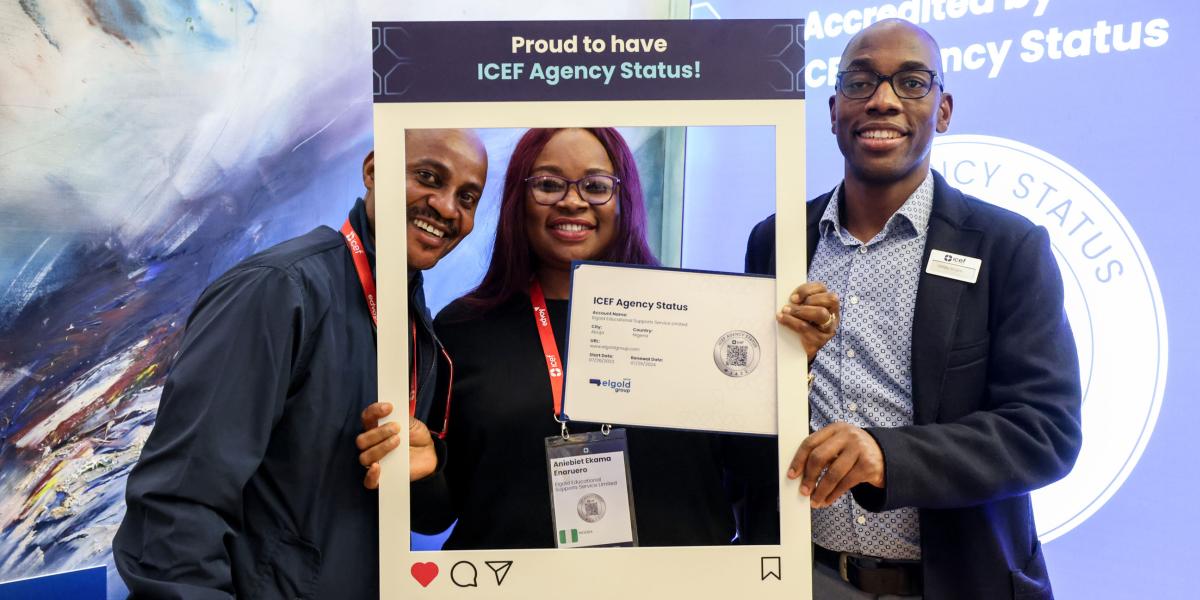
New in 2024, NAFSA is proud to introduce a new series of blog posts, written by NAFSA Global Partners. These institutions represent a broad range of perspectives, develop innovative approaches that enrich the field, and bring a wealth of expertise to the international education community.
The international education marketplace is more complex than ever. A greater number of destinations—and education institutions—are competing for students’ attention. The range of available study programs and student decision factors has also greatly expanded.
As a result, both students and educators are increasingly turning to agents for support. Students rely on agents to help them to plan for study abroad. Institutions appreciate the local expertise and support of agents.
Greater use of agents has underscored the need for improved quality standards for institution-agency collaborations. Several best practice guidelines now exist, some developed by governments and peak bodies and some created by other stakeholders.
Despite having been developed at different times and in different contexts, the selected resources below all aim to codify best practices for educators and agents. Persistent themes include honesty, accountability, and transparency in agency-educator partnerships.
- The London Statement
- The Guide to International Student Recruitment Agencies (NACAC)
- The National Code of Ethical Practice for UK Education Agents (BUILA)
- The Australian Agent Code of Ethics (ACE)
- Best Practice Guidelines for Institutional Members (AIRC)
- Best Practice Guidelines for Education Providers and Agents (ALTO)
A New Code of Conduct Governing ICEF-approved Agencies
For the past year, ICEF has been engaged in a process of deep reflection on these important themes, leading to the development of the ICEF Code of Conduct. This is a code of practice that agencies are now required to endorse and comply with in order to establish or maintain their ICEF Agency Status and their eligibility to attend ICEF events.
“The increasing use of education agents in international recruitment also underscores the need for improved quality standards,” says ICEF CEO Markus Badde. “The number of active agents continues to grow quickly yet the sector still remains largely unregulated. For decades we have consistently worked to advance professional standards in international student recruitment by screening, training, and accrediting education agencies. Given current circumstances we feel there is now a need to do more. Over a year ago, we introduced block chain technology enabling students, parents, and educators to easily and instantly verify an agency's IAS accreditation. Now we have gone even further with the implementation of a more in-depth vetting process for participating agencies, with increased agent monitoring and quality assurance measures as well.”
There are currently over 1,500 education agencies in 115 countries who have been accredited and have ICEF Agency Status—a designation that is valid for one year and for which the vetting and review process is refreshed annually. This fast-growing base of IAS agencies already represents the largest network of accredited agencies in the industry, and, as such, represents a new global standard for agency recognition and quality assurance.
An illustrative excerpt from the code appears below, and we hope this new global standard will be a valuable support both for educators working with agents and for agents who aim to distinguish themselves in an increasingly competitive marketplace.
ICEF Code of Conduct for the Ethical Recruitment of International Students
Agency owners and executives are straightforward, transparent, and accountable at all times and in all dealings with staff, institutions, students, parents, and other stakeholders. This includes ensuring that they and their staff are:
- Acting fairly and in the best interests of both students and institutional partners.
- Providing current, accurate, and honest information.
- Providing realistic and appropriate information that is tailored to the individual student, particularly in relation to language ability, financial capacity, and intended study programme.
- Ensuring that visa and admissions applications are free of any fraudulent or misleading documents or representations.
- Being transparent in all business dealings and advisory services, including avoiding any conflicts of interest or misrepresentation.
- Prioritizing the use of signed agreements or contracts between the agency and the institution and being transparent with both students and receiving institutions in cases where a student may be referred outside of any such formal agreement.
- Disclosing to partner institutions whether any contracted subagents may play a role in recruitment and ensuring appropriate oversight or quality assurance measures to monitor subagent compliance with this code of conduct.
- Preserving the confidentiality of all personal and business information.
- Ensuring that minor students have adequate representation and support from a parent, guardian, and/or legal counsel.
- Representing accurately the rights and responsibilities of the student in their intended destination country.
For additional background on the ICEF Agency Status program, including the complete Code of Conduct, please see www.icef.com/ias.
For more information, see NAFSA’s editorial guidelines for Global Partner content.
